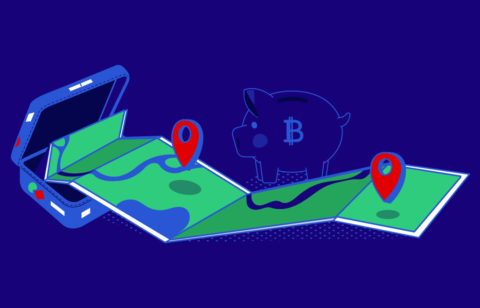You might have seen reverse mortgages touted by celebrities on TV and wondered if they are legit. The short answer is yes, but first, there are many details about them you need to know.
Reversed mortgages have continued to evolve and increase in popularity since they were first introduced in 1961.
This type of mortgage has also grown safer every year due primarily to the Federal Housing Administration’s (FHA) rules and regulations. It continually updates its reverse mortgage regulations with new guidelines designed to protect borrowers.
If you’re not familiar with reverse mortgages, they can increase your parent’s income for a more fulfilling retirement. They do this by enabling them to borrow against their home’s equity while continuing to own and live in the home.
The best part
Unlike conventional mortgages or debt consolidation loans, your parents aren’t required to make any payments when they take out a reverse mortgage. Instead, the lender pays your parents in one single sum, as a line of credit like a HELOC, or in monthly installments.
The lender gets repaid when your last surviving parent dies, your parents permanently move out, or they sell the home. The borrower must be 62 or older to qualify.
One big advantage of a reverse mortgage is that lenders don’t typically have minimum income or credit score requirements, which gives homeowners a better chance at qualifying. On the other hand, your parents could see their equity reduced.
Let’s go over the pros and cons to help you decide if a reverse mortgage might suit your parents’ needs.
How a reverse mortgage could benefit your parents
First and foremost, it can be a great source of income if your parents need more money to fund a comfortable lifestyle. It enables them to boost their income and stay at home without increasing their monthly payments.
What are the requirements for a reverse mortgage?
The thinking behind a reverse mortgage is that it’s a way for seniors to use the equity in their home to augment their bank account while also providing a roof over their head.
Below are the four most important qualifications your parents need to typically meet:
- The borrower must be over the age of 62
- Your parents must own the home or have a low mortgage balance
- They generally must have at least 50% equity in the home
- The home must be their principal residence, meaning they live there most of the year
Three other obligations
If your parents decide to get a reverse mortgage, they will continue to have financial obligations to ensure they don’t default on the loan.
They typically are responsible for the following:
- They must immediately use the funds from the reverse mortgage to pay off any other mortgage
- They must continue to make payments on their property taxes, home insurance, and basic home maintenance
- The home must be in good shape and meet the required property standards
People Also Read
Two more benefits
Reverse mortgages are technically Home Equity Conversion Mortgages (HECM) that are non-recourse. This means that if your parents do not repay the loan after it matures, the lender is not usually allowed to take any asset to pay off the loan other than the home.
Secondly, if the amount of your parents’ debt is more than the home’s value, they usually won’t owe more than the amount the home sells for.
A few important regulations
There are FHA regulations that you and your parents should take into consideration.
Before the loan is approved, your parents will generally be required to meet with a counselor to ensure they know all their options. This is intended to protect seniors like themselves by helping them make informed decisions.
Another protection of the loan is that the lender typically can’t require your parents to purchase other loans or financial products as a condition of receiving one.
Your parents may be limited to access only 60% of the approved loan amount in the first year of the mortgage or the amount needed to pay off their current mortgage plus 10%—whichever is greater.
After the second year, they usually can access the remaining amount. The idea behind this is to prevent them from pulling out their equity too quickly.
A financial assessment
The lender of the reverse mortgage is usually required to fill out a financial assessment and analyze your parents’ income versus expenses ratio.
If this ratio shows they might have trouble paying their home insurance premiums, recurring taxes, or other obligations, the lender may set aside money from their loan funds to cover these costs.
Finally, your parents will typically have three business days after the loan closes to change their minds and cancel the reverse mortgage without penalty. Normally the lender cannot charge your parents interest during this time.
The downsides of reverse mortgages
There is a price attached to all mortgages and a reverse mortgage is no exception. In fact, the cost of one can be extremely high as it ordinarily will include:
- Interest
- Mortgage insurance fee
- Loan origination fee
- Fee to cover the cost of an appraisal
- Title insurance fees
- Other miscellaneous closing costs
If your parents move permanently from their home, it is likely the loan will immediately become due. This may not pose a problem now, but it could if they ever need to move to a full-time care facility.
At that point, they may need to pay back the loan or give up their home. The same is true if they were to live somewhere else for a year.
The final negative of a reverse mortgage is how it could affect your parents’ estate. It will more than likely shrink the equity in their home, which reduces the amount of money left for you and any other heirs. But if your parents need the money, that should take top priority.
FAQs about a reverse mortgage
Q. What happens if your parents have an existing mortgage?
A. While they may still qualify for a reverse mortgage, it should be in the first lien position so that any existing mortgage can be closed. Your parents could pay off the existing mortgage with money from the reverse mortgage, their savings, or with financial help from a friend or family member.
Q. How much money could my parents get?
A. This will depend on several factors including the age of your youngest parent, the home’s appraised value, and the loan’s interest rate. If the loan is from a government program, the FHA has a lending limit which is currently $1,809,300.
If your parents’ home is worth more than the maximum amount, it will probably still be based on the loan limit.
Q. How does the interest work on one of these mortgages?
A. Your parents usually will be charged interest only on the money they receive. It may have either a fixed or variable rate. Their interest rate will not be paid out of the proceeds from the reverse mortgage but instead compounds over the life of the loan until it is paid off.
Q. What could my parents do with the proceeds from their reverse mortgage?
A. The money they would get from a reverse mortgage could be used for anything – to supplement their retirement income, repair or modify their home, cover their daily living expenses, pay off existing debts, cover their property taxes – or even prevent foreclosure.
Q. Could my parents deduct their interest charges for income tax purposes?
A. Your parents can typically only deduct their interest charges when they have paid them. If they have not made any interest payments on the reverse mortgage, they probably won’t be allowed to deduct any interest for income tax purposes.
Q. Will my parents receive statements from the lender?
A. The company that services your loan usually must issue your parents a statement of account after each credit activity. It should also provide them with a statement about any impending interest rate charges that may impact their mortgage.
Finally, the loan servicer is generally required by law to provide your parents with an annual statement of account. It will detail all the account’s activity in the previous year.
Taking out a reverse mortgage can be advantageous, especially if your parents need the extra funds. But before they do, it’s important for you and them to understand all the pros and cons.









